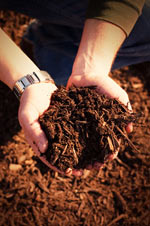Buying Land
Many people new to buying land may have an idea of what they want, but they do not know where to begin. Land for sale is rarely advertised on the high street and often exchanges hands between farmers, developers and existing land owners.
If you are looking for Land for Sale within the United Kingdom, please visit our land for sale page.
Recent years have seen the public gain more access to land, whether for self build, investment or recreation thanks to a growing number of land agents and specialist publications.
Land can be put to many uses: profit, pleasure or even a combination of the two!
Land agents across the UK source land directly from their land banks - eliminating the third party makes buying land a simple process.
Land Auctions provide an alternative route to buying plots of land. Some land agents hold regular land auctions.
Buying Land - Key Points
Ground conditions
 No matter how the land your buy is to be used, the ground conditions will effect the suitability of the plot.
No matter how the land your buy is to be used, the ground conditions will effect the suitability of the plot.
The soil type may not be ideal for the type of plants/trees you hope to grow, or may require a large amount of work to create the foundations for building on. Worse still, the land could be situated on a flood plain. Your solicitor should carry out checks and the purchase processes on your behalf.
Land that has had a previous use is known as brownfield land . In some cases the previous use could have caused the land to become contaminated through use of agricultural chemicals, industrial pollution or infill. If there is any question about the quality of soil, a sample should be collected and tested.
If the land lies on a slope it may require more labour and materials to put solid foundations in place. Ensure any additional work required is budgeted for and may be used as a point of negotiation.
The plot
Access - the first point you come across. How do you access the land? Does the access point cross land not belonging to you? Some vendors hold back a strip of land between the access point and your land. This is known as a ransom strip - the owner of the strip can prevent you accessing the land and hold you to ransom. A solicitor will check for this.
If the access is via a private drive you will be responsible for maintaining it. This may be shared with other users of the drive but an annual budget should be allocated for maintenance.
The plot size and shape should be checked - the area of the plot may provide the land required, but an awkward shape can quickly end plans you might have.
Before you buy land for building on find out if services are connected or whether it is near to existing services for connection. Buying land without nearby services may mean that their addition is not physically possible or is financially demanding.
If the land has planning permission, look over the plans and see that it tallies with what you hope to build. If not speak to the local council for an informal decision. It is possible to reapply for planning permission without affecting the planning permission that has already been gained, so all will not be lost.
Do make sure that the planning permission has not expired, and will not expire within the time of the transaction and the time it will take to get started. Your solicitor will also check for this. The checks should also cover previous planning applications so you can see what has been applied for and succeeded or failed in the pas, and whether it suceeded.
We have provided a land buying checklist to take on site in a printable PDF format.
Land in the News
Farmland values have increased by 7.4% in the last 9 months
Farmland values to rise again in 2012
Farmland prices increase by 16% in the last year
Farmland values rose by 5.4% in the first quarter of 2010
Agricultural land key part of investment plans
Why this man chose farms over funds
UK house building hits lowest since 1946
